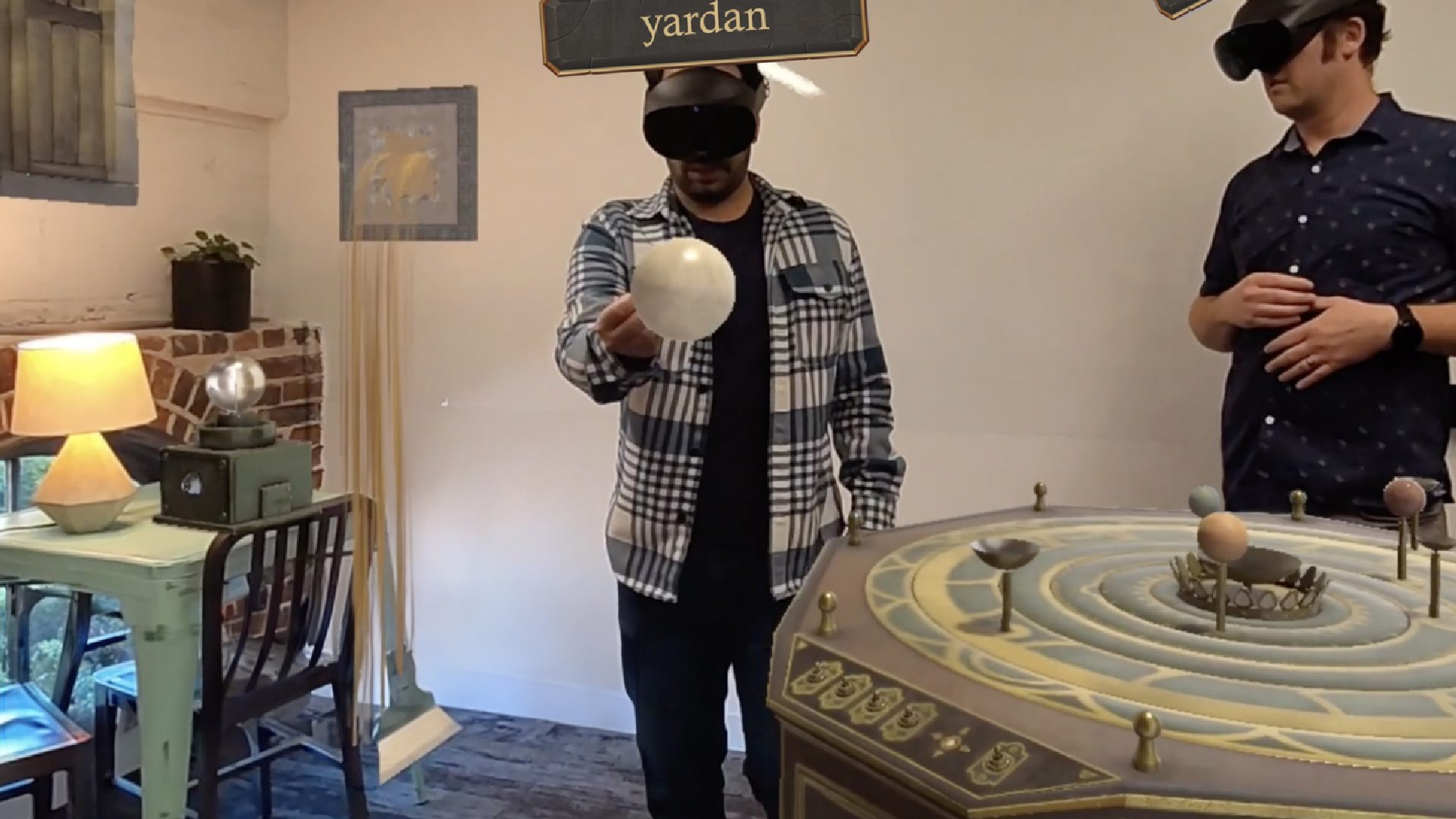Meta now has three mixed reality headsets, but still not a ton of mixed reality content to go with it. To remedy that, the company threw out an open source Unity demo it hopes to showcase some of the most compelling things you can do in MR.
Called Cryptic Cabinet, the escape room demo was designed to highlight the capabilities of the company’s MR Presence Platform on Quest, which Meta says can transform any room into a unique and immersive gameplay experience.
Anyone with a Quest 2/3/Pro can download it now and play the new immersive escape room, which warps a mysterious cabinet and a host of cryptic puzzles items into your room.
Above all, Meta says in the announcement blog post Cryptic Cabinet was built to showcase “how developers can create an MR experience that is tailored to each player’s room,” noting that the room layout provided during the MR space setup gives developers the ability to deploy items on the user’s walls, floor, ceiling, and furniture.
You can check out Cryptic Cabinet in action below:
Like how the company seeded developers with VR demos in the early days, Meta says Cryptic Cabinet is similarly here to show off best practices when using the whole gamut of its MR software features, including Scene API, Shared Spatial Anchors, Colocation, Passthrough, and Passthrough Color Mapping. To boot, Meta has also made the full source code is available on GitHub so anyone looking to make their own immersive MR experience can take a look under the hood, and modify it too.
Granted, Meta has provided a good amount of developer resources on the matter, but why release something like Cryptic Cabinet now, and not in late 2022 when it launched Quest Pro, or a few months ago when it launched Quest 3?
That’s not entirely clear, although here’s some conjecture anyway: it seems there just isn’t a glut of compelling MR content out there right now, as many at this stage either come as experimental mini-games attached to regular VR content, or simple passthrough versions of the VR game. MR mini-games seen in Ghostbusters: Rise of the Ghost Lord (2023) and Stranger Things VR (2024) are fine freebies, but nothing to write home about. Being able to see your dog as you play Demeo (2021) and Broken Edge (2022) in your living room is also cool, but neither of them really use the player’s room to its fullest extent.
That’s not to say there isn’t any MR content that doesn’t lie outside the binary of ‘aliens breaking through your walls, and regular VR game but with passthrough‘, although there are very few at this point. Still, it’s difficult to knock developers for not going all-in on mixed reality content. As with any new medium, the first thing to fall is the low-hanging fruit, which we hope gets eaten up faster than not.
,
